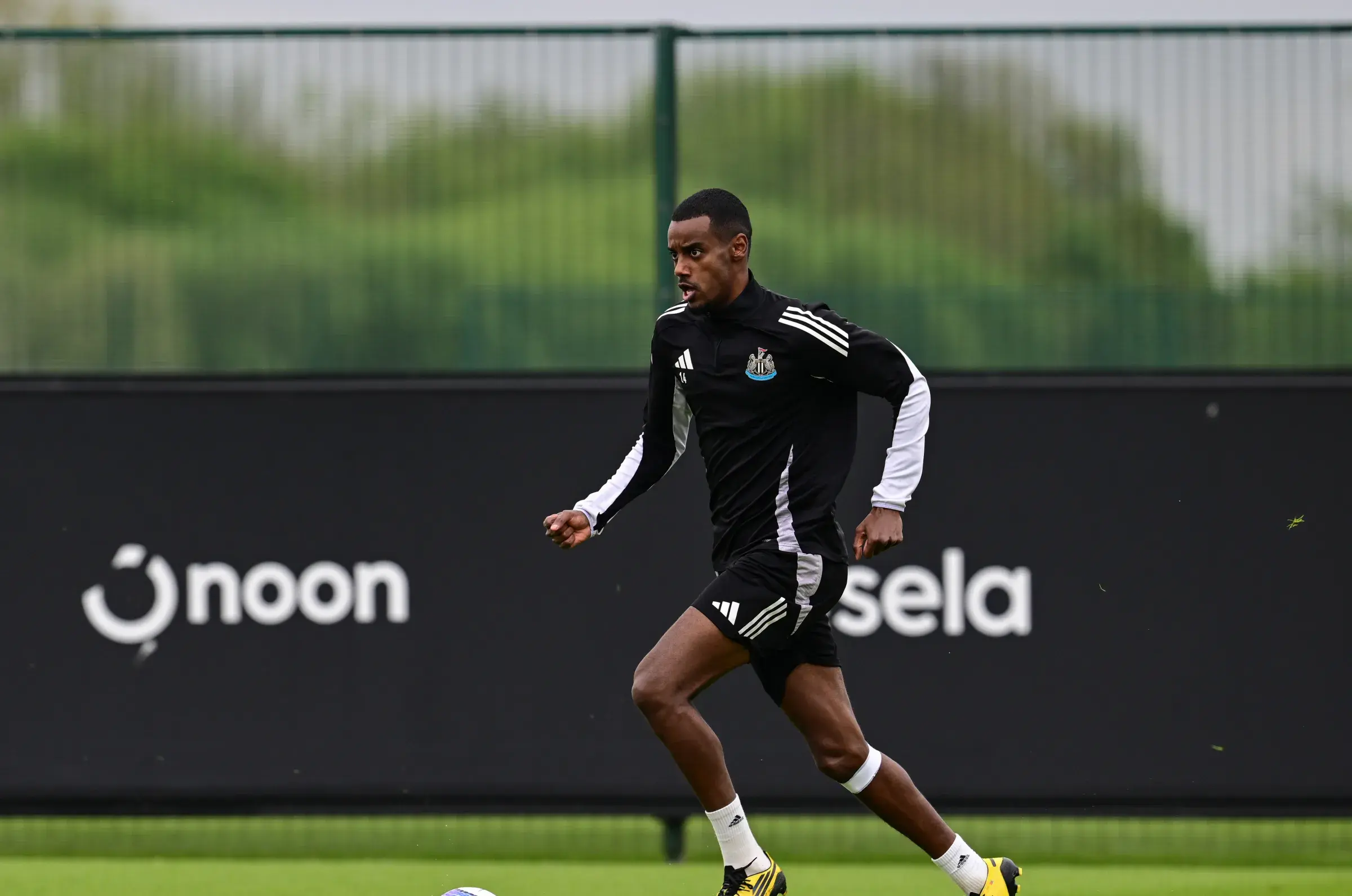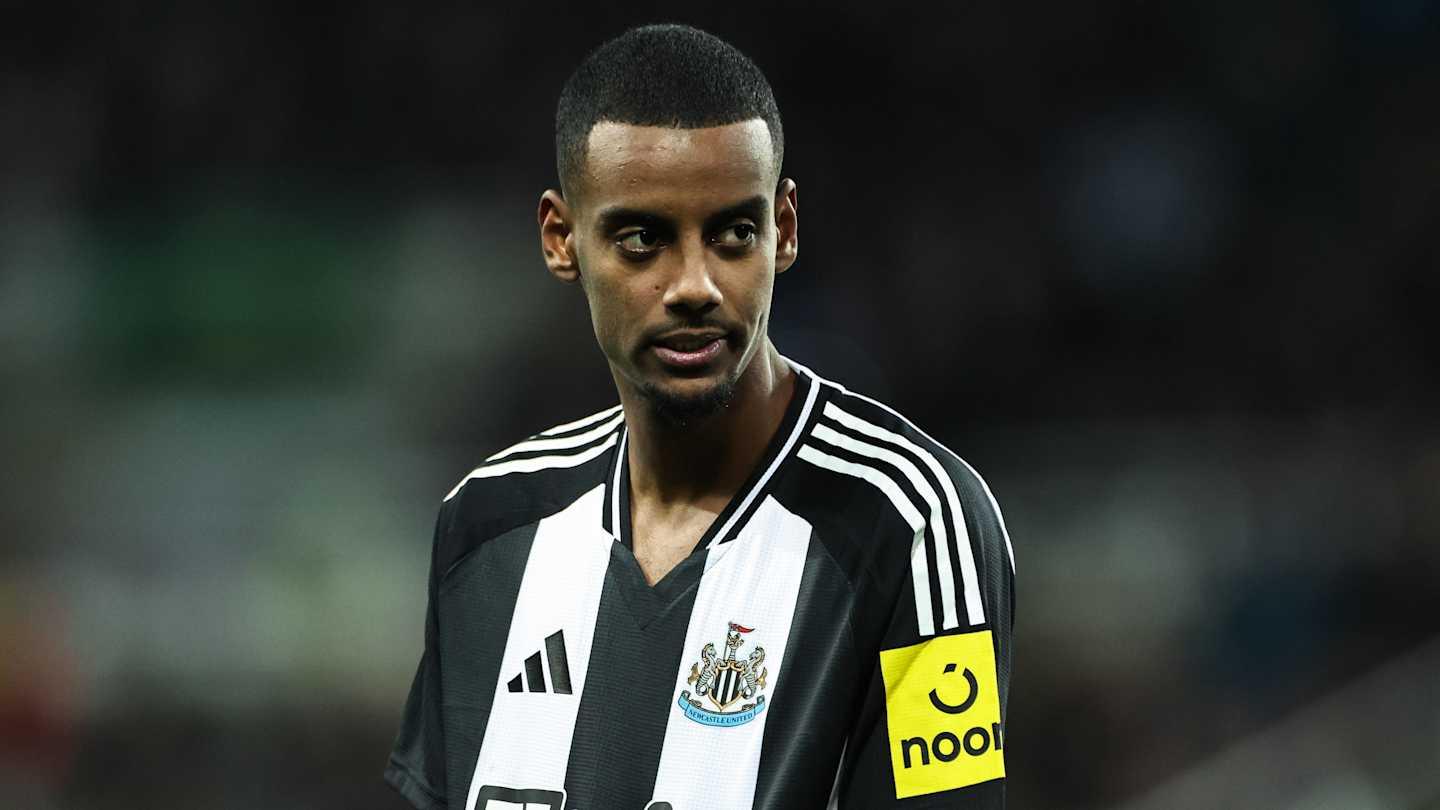A Striker Out of Step: The Breaking Point
It was 3 August 2025. Across media outlets, one clear message emerged: Newcastle United forward Alexander Isak had been instructed to train separately from the first‑team squad. Manager Eddie Howe declared that Isak must “earn the right to train with us,” a phrase loaded with frustration and warning suggesting both breach of unspoken expectations and the club’s attempt to assert control.
This wasn’t a whisper it was a public act of isolation. According to Sky Sports’ Keith Downie, Isak was in fact training alone at Real Sociedad’s facilities in Spain, working with his personal staff while the Newcastle squad took part in a pre-season tour of Asia . It was a striking image: the star striker, contracted until 2028, cut adrift amid speculation Liverpool would come knocking again.
Context & Contract: Why the Rift?
The backdrop is unmistakable: Liverpool lodged a bid of around £110–120 million, which Newcastle rejected—and firmed their stance that Isak is not for sale unless their £150 million valuation is met . Meanwhile, Isak had asked to explore transfer options, deciding not to join the Asia tour citing a minor thigh injury—though scans reportedly showed no serious issue.
One insider freeze-framed the tension most clearly: Isak reportedly missed the Newcastle family day arranged by Howe, and is now training alone—an unusual outcome for a club that recently finished 5th in the Premier League and secured an EFL Cup win thanks in part to Isak’s goals .
Howe’s Mantra: “Earn the Right”
Howe’s position is uncompromising. On record: “No player can expect to act poorly and train with the group as normal”. Given the breakdown of multiple striker targets—RB Leipzig’s Benjamin Šeško opting instead for Manchester United, and stalled negotiations for Yoane Wissa—the club appears intent on retaining leverage in waiting for a replacement before any sale
Isak’s absence from both the tour and key friendlies (e.g. Celtic match) reinforce the club’s determination to avoid disruption: Howe even sent him home from Glasgow to avoid having him sit on the bench amid swirling speculation.

Fans in Fury & Fracture
Online reaction has been fierce. According to Football Insider, fans turned on Isak after reports of his isolation, calling his behavior “disgraceful” and urging Newcastle to sell him if his loyalty wavered. One tweet read: “He’s a disgrace. #NUFC”, while another admonished: “He’s gone from hero to zero…unprofessional behaviour” a harsh verdict from supporters once enamoured with his on-field influence and goalscoring pace.
Beyond the anger, fellow professionals like Dan Burn acknowledged the emotional fracture, warning that Isak’s departure would “upset” a tight-knit squad that had bonded over recent success.
Isak’s Side: Ambition or Turbulence?
What drove the decision to train apart may reflect more than conflict—it reveals ambition. Reddit posts capture a complex portrait: from earlier appearances stating his desire to stay for the project to comments indicating a shift in mindset today. In March 2025, Isak reportedly told Swedish media that he felt “at home” and wanted to perform for Newcastle; yet, less than six months later, he looks elsewhere .
Opinions diverge. On NewcastleUnited, one fan noted:
“I think there’s also the element of the team being built around him … I get the feeling that he's realised just how much that star treatment… has helped him become the player that he is.”
Another Reddit user pointed to his on-pitch productivity: reaching 50 Premier League goals in only 76 matches, placing him in elite statistical company . That raw output bolsters his confidence in seeking higher challenges.
Personal Lens: The Tug-of-War Within “Home”
As someone who grew up balancing loyalty with ambition, I see Isak’s situation as emblematic: is he disloyal, or simply torn between gratitude and the need to grow? He owes much to Newcastle: a career launched, trophy won, and personal bests scored. Yet if he feels the ceiling crumbling or that the project has plateaued the impulse to leave becomes natural.
There’s a fine line between natural ambition and perceived disrespect. Training alone might feel professional: recovering, staying sharp. But in a league driven by unity and physical presence, isolation sends a signal. Eddie Howe’s insistence that Isak earn back squad trust frames it as a moral, not merely logistical, question.
The Stakes: What Happens Next
For Isak: Rebuilding trust may mean formal apology, recommitting publicly or proving his professionalism day by day. Otherwise, he risks alienating teammates, fans, and even prospective new clubs concerned by optics.
For Newcastle: The club faces a gamble, retain a key striker smouldering in tension, or sell at a peak fee but risk destabilizing morale. Their continued activity to replace Isak, including bids for Sesko, Wissa, Jackson and others shows urgency but also the fragility of planning under uncertainty.
For Liverpool: Though they recently signed Hugo Ekitike and Wirtz, they remain keen on Isak, with potential window to reignite pursuit, especially if Newcastle concedes over Isak’s value or mental state.
Broader Reflection: The Price of Ambition in Football
In a game increasingly built on personalities and brand, players may feel entitled to fast-tracks—especially when elite clubs beckon. Yet the traditional values of loyalty and professionalism still resonate with fans and clubs deeply invested in identity.
Isak’s case raises larger questions: Should clubs always stand firm, even at cost of instability? Should players suppress transfer ambitions for unity? Is there a middle way where ambition and allegiance coexist? These dilemmas shape the culture of modern football.
Final Thoughts: A Club and a Player at a Crossroads
Alexander Isak’s isolation from the Newcastle squad is not just a tactical footnote, it’s a cultural flashpoint. It reflects evolving norms in player power, club authority, and fan belonging. Whether Isak returns reintegrated or departs at the height of his market value will say as much about Newcastle’s culture as it does about football’s modern priorities.
For me, observing from abroad, this story resonates because it’s not only about football. It’s a universal conflict: stay for loyalty, or leave for growth. In football, as in life, the spotlight burns brightest when paths diverge not only in goals and wins, but in values, identity, and legacy.
Leave a comment
Your email address will not be published. Required fields are marked *




